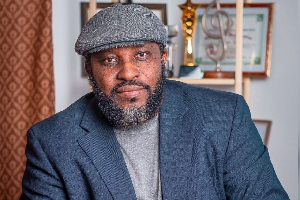The World Bank approved today a $200 million International Development Association (IDA)* credit to support Ghana in strengthening its institutions, improving competitiveness for job creation, and maintaining social safety nets to protect the poor and vulnerable.
The Second Macroeconomic Stability for Competitiveness and Growth Development Policy Financing (DPF) operation will specifically support reforms by government to manage better subsidies and arrears particularly by State Owned Enterprises (SOEs) in the energy sector, which have contributed to weakening Ghana’s fiscal position and have adversely affected growth.
Over time, as fiscal outcomes become more predictable, confidence among both domestic and external investors will grow. This, in concert with better performance of the energy sector, will help improve Ghana’s business environment, making it more competitive to create more and better jobs, further reduce poverty, and help boost shared prosperity.
“As the economy improves and creates more and better jobs, there is also need to protect and promote livelihoods of the poor and the vulnerable segment of the population to help break intergenerational poverty,” said Henry Kerali, World Bank Country Director for Ghana. “Building institutions for predictable fiscal outcomes and improving the business environment for the private sector are likely to remain priorities for the Government of Ghana as medium to long-term goals.”
The Second Macroeconomic operation is the last in a programmatic series of two single-tranche operations to support the implementation of Ghana’s Second Shared Growth and Development Agenda over the 2014-2017 period.
The operation complements the macroeconomic stabilization program supported under the IMF Extended Credit Facility. In addition, technical assistance to undertake reforms is being provided under the Ghana Economic Management Strengthening Technical Assistance Project supported by the World Bank.
“Recent commitment to entrench fiscal responsibility rules and establish a fiscal council to provide oversight on the implementation of such rules, are positive developments and the World Bank looks forward to supporting such reforms going forward,” said Errol George Graham, World Bank Program Leader and Lead Economist.
The reforms initiated in the energy-related SOE sector, including corporate governance reforms are critical to reducing contingent liability and improving service delivery.
This DPF operation is fully aligned with the World Bank Group Country Partnership Strategy and is consistent with the World Bank Twin Goals of boosting shared prosperity and ending extreme poverty.
The DPF operation is closely coordinated with other budget support operations from other development partners.
The World Bank’s International Development Association (IDA), established in 1960, helps the world’s poorest countries by providing grants and low to zero-interest loans for projects and programs that boost economic growth, reduce poverty, and improve poor people’s lives.
IDA is one of the largest sources of assistance for the world’s 75 poorest countries, 39 of which are in Africa.
Resources from IDA bring positive change to the 1.5 billion people who live in IDA countries. Since 1960, IDA has supported development work in 113 countries.
Annual commitments have averaged about $18 billion over the last three years, with about 54 percent going to Africa.
Business News of Tuesday, 26 December 2017
Source: thebftonline.com
Ghana gets support for fiscal institutions, jobs, and social security
Entertainment












